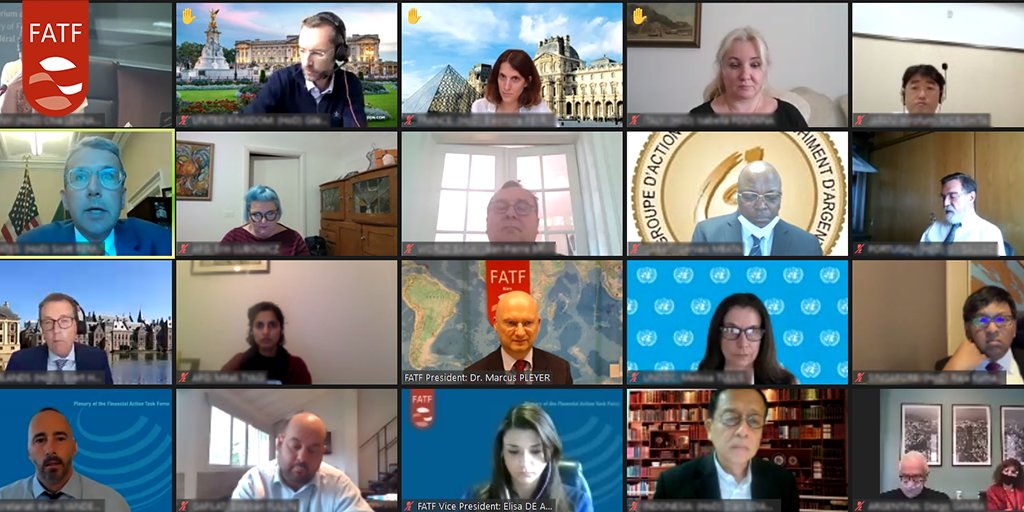New Delhi: Pakistan remains on the ‘grey list’ on the Financial Action Task Force (FATF) as it has not fulfilled all the points in the checklist for terror financing. It also needs to complete a new anti-money laundering action plan the implementation of which – according to the Pakistan government – could take a year.
At the end of the five-week plenary meeting of the FATF, the president of the global terror financing watchdog, Marcus Pleyer, said, “Pakistan remained under increased monitoring”.
Pakistan has been on FATF’s ‘Jurisdictions Under Increased Monitoring’, known colloquially as the ‘grey list’, since June 2018.
Pleyer stated that Pakistan had made “substantial progress” and “largely addressed 26 out 27 items on the action plan it first committed to in June 2018”.
He added that the “key action item” that remains to be completed “concerns the investigation and prosecution of senior leaders and commanders of UN-designated terror groups”. This point is of special concern for India as it relates to Pakistan’s lagging prosecution of Mumbai terror attack masterminds like Hafiz Saeed and Zakiur Rehman Lakhvi.
Besides this, Pakistan has also agreed to complete a parallel process under FATF’s regional partner, the Asia Pacific Group, focusing on preventing money laundering.
The FATF president noted that this new action plan had been drawn up to address the deficiencies noted in Pakistan’s 2019 APG Mutual Evaluation Report. This latest action plan has “six action items including enhancing international cooperation and demonstrating that assistance is being sought from foreign countries in implementing UN Security Council designations”.
As per the FATF chairman’s summary, Pakistan has been asked to show progress in six areas:
- Enhancing international cooperation by amending the MLA law.
- Demonstrating that assistance is being sought from foreign countries in implementing UNSCR 1373 designations.
- Demonstrating that supervisors are conducting both on-site and off-site supervision commensurate with specific risks associated with DNFBPs (designated non-financial businesses and professions), including applying appropriate sanctions where necessary.
- Demonstrating that proportionate and dissuasive sanctions are applied consistently to all legal persons and legal arrangements for non-compliance with beneficial ownership requirements.
- Demonstrating an increase in ML (money laundering) investigations and prosecutions and that proceeds of crime continue to be restrained and confiscated in line with Pakistan’s risk profile, including working with foreign counterparts to trace, freeze, and confiscate assets.
- Demonstrating that DNFBPs are being monitored for compliance with proliferation financing requirements and that sanctions are being imposed for non-compliance.
He made it clear that Pakistan will have to complete both the parallel processes to be removed from the ‘grey list’.
“So, the delisting will not occur before both action plans are completed, and two on-sites (visits) have been granted and successfully completed and have shown that the improvements are sustainable before the FATF members decide on delisting,” he said.
In Islamabad, Pakistan’s minister for energy, Hammad Azhar, stated that the new action plan focused on money laundering would be implemented in 12 months. “The previous action plan was for counter-terrorism, and the new one is for anti-money laundering,” said Azhar, adding that the anti-money laundering plan will be much easier to tackle than the counter-terrorism one, as reported by Geo News.
During the plenary, FATF agreed to remove Ghana from the ‘grey list’ after nearly two years. However, it added four more countries to this list – Haiti, Malta, the Philippines and South Sudan.
































